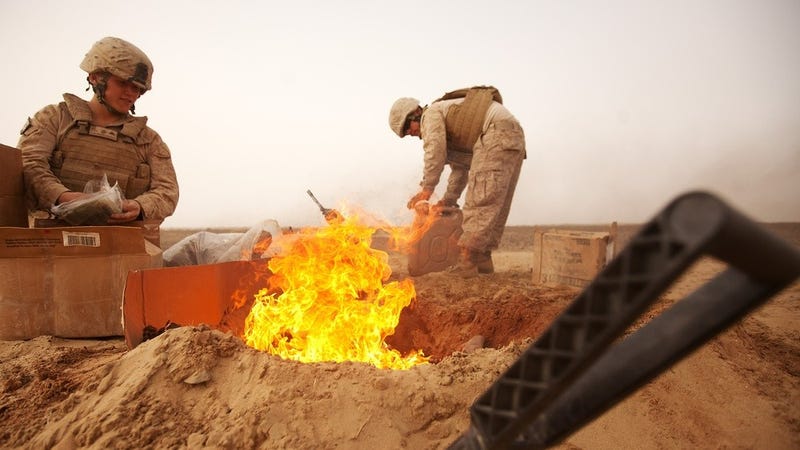
The House of Representatives is expected to vote on a bill sometime next week that would expand health care and benefit coverage for veterans exposed to toxins as a result of their military service.
House Veterans Affairs Committee Chairman Rep. Mark Takano (D-Calif.) made the announcement concerning the Honoring our Promise to Address Comprehensive Toxins (PACT) Act on Feb. 22.
“For too long, America’s message to toxic-exposed servicemembers and veterans has been simple – we thank you for your service, but the price tag for addressing your exposure is just too high,” he said.
In addition to establishing a presumption of service connection for 23 respiratory illnesses and cancers related to burn pits and airborne hazards exposure, the PACT Act would:
• Provide Priority Group 6 healthcare for as many as 3.5 million toxic exposed veterans
• Streamline VA’s review process for establishing toxic exposure presumptions
• Concede exposure to airborne hazards/burn pits based on locations and dates of service.
• Require medical exams/opinions for certain veterans with toxic exposure disability claims.
• Add hypertension and MGUS to the list of presumptions for Agent Orange exposure.
• Create a presumption of exposure to radiation for veterans who participated in cleanup activities in Palomares, Spain and Enewetak Atoll.
• Expand Agent Orange exposure to veterans who served in Thailand, Laos, and Cambodia • Improve data collection between VA and the Department of Defense.
• Commission studies related to incidents of cancer among veterans, health trends of post 9/11 veterans, and feasibility of providing healthcare to dependents of veterans.
• Require VA provide standardized training to improve toxic exposure claims adjudications.
• Require VA conduct outreach and provide resources to toxic exposed veteran
According to the Congressional Budget Office, the PACT Act would cost more than $280 billion over the next 10 years. Even with that price tag, 11 veteran services organizations have expressed strong support for the measure even as House conservatives balk at the cost.
“We’re really at a pivotal point right now, especially with toxic exposure legislation,” said Chief Executive Officer of Iraq and Afghanistan Veterans of America Jeremy Butler. “Both the Senate and the House have large comprehensive legislation that would address toxic exposure.”
The Senate recently passed the Health Care for Burn Pit Veterans Act, which sponsors called the first of a three-step bipartisan approach the Senate Veterans’ Affairs Committee will take to address the effect of toxic exposure on veterans. It is expected to cost about $1 billion.
Among its provisions, the legislation would:
· Expand the period of health care eligibility for combat veterans who served after Sept. 11, 2001 from five years following discharge to ten years;
· Provide a one-year open enrollment period for any Post-9/11 combat veterans who are outside their 10-year window;
· Establish an outreach plan to contact veterans who did not enroll during their initial period of enhanced eligibility;
· Direct VA to incorporate a clinical screening regarding a veteran’s potential exposures and symptoms commonly associated with toxic substances;
· Mandate toxic exposure-related education and training for healthcare and benefits personnel at VA; and
· Strengthen federal research on toxic exposures.

Talks have not yet begun on how a compromise between the two bills could be ironed out.
Reach Julia LeDoux at Julia@connectingvets.com.



